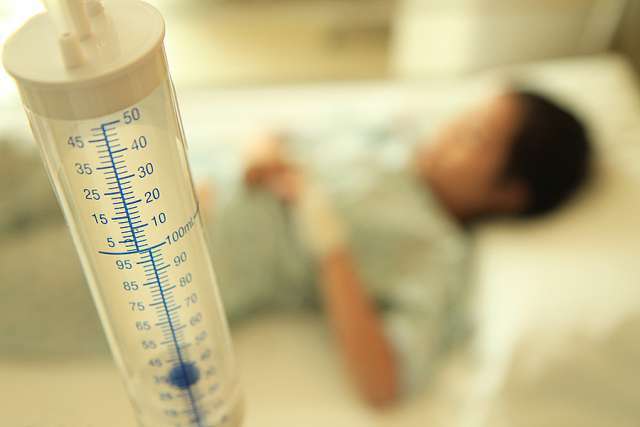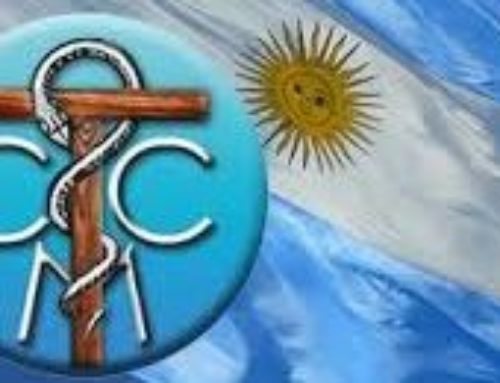17th Bilateral Commission Meeting of the Delegations of the Chief Rabbinate of Israel and the Holy See’s Commission for Religious Relations with the Jews
Jewish and Catholic Approaches to the terminally ill:
The Prohibited, the Permitted and the Obligatory
(Jerusalem, May 2-4, 2023; Iyar 11-13, 5783)
Joint Statement
1. At the opening reception, Chief Rabbi Arussi welcomed the delegations, and noted that due to the Covid epidemic, the Bilateral Commission meetings had not taken place for five years, and thus expressed particular joy at this reunion. The delegations wished Rabbi Arussi a speedy recovery from his indisposition and a return to full health. Mr. Yehudah Cohen, the newly appointed Director-General of the Chief Rabbinate of Israel added his welcome, and expressed his admiration for the work of the Bilateral Commission, and its importance for society at large.
2. Deliberations commenced the next morning, expanding upon the 6th meeting of the Bilateral Commission that had addressed the subject of human life and technology, in light of the far-reaching advances in medical science.
3. The Catholic presentation highlighted the guiding principles regarding the treatment of the terminally ill, opening with Pope Francis’ caution regarding “the contemporary socio-cultural context progressively eroding the understanding of that which makes human life precious.”
4. Thus, the dignity of every human being, which for Jews and Catholics flows from the religious affirmation of the sanctity of human life, was reaffirmed in accordance with the Bilateral Commission’s declaration issued in Rome in February 2006 – Shevat 5766: “We affirm the principles of our respective Traditions that God is the Creator and Lord of all life and that human life is sacred precisely because, as the Bible teaches, the human person is created in the Divine Image (cfr. Gen 1:26-27). Because life is a Divine gift to be respected and preserved, we perforce reject the idea of human ownership of life and of the right of any human party to decide its value or extent. Thus we repudiate the concept of active euthanasia (so-called mercy killing) and physician-assisted suicide, as the illegitimate human arrogation of an exclusive Divine authority to determine the time of a person’s death.” Furthermore, “In this regard, we reiterate the teachings of our heritages that all human knowledge and capacities must serve and promote human life and dignity and thus be in harmony with the moral values that emanate from the aforementioned principles. Accordingly, there must be limits to the application of science and technology in recognition of the fact that not everything which is technically feasible is ethical.”
5. Special emphasis was placed on the importance of compassionate palliative care and maximal effort to alleviate pain and suffering. Further reference was made to the historic joint declaration of the three Abrahamic Religions rejecting active euthanasia and physician-assisted suicide, and promoting palliative care, issued at the Vatican on October 28, 2019 – 29 Tishrei 5780.
6. For both Jews and Christians, taking care of the terminally ill with belief , respect and love means truly to light the lamp of faith and hope at a time shrouded in darkness and a sense of solitude and abandonment for both patient and dear ones.
7. The second session was about the guidelines regarding the terminally ill as legislated in harmony with Jewish tradition and their global ramifications. Distinctions was highlighted between actions that hasten death, and actions of omission beyond the provision of basic human needs; hence active euthanasia and physician-assisted suicide and withdrawing continuous medical treatment (e.g. ventilator or pacemaker) and the withdrawal of life-prolonging medical treatments beyond basic human needs (e.g. dialysis, chemotherapy).
8. The delegations recognize that the ethical and religious complexities involved in end-of-life situations, require that each situation be addressed according to its particular circumstances and needs.
9. The delegations were welcomed by the Director-General of Shaarei Zedek Medical Center, where they witnessed the treatment of the terminally ill in accordance with the above-mentioned principles.
10. The members of the delegation gave thanks to God the Creator, asking for His blessing upon all who are sick, and all who are engaged in healing and preservation of life.
Jerusalem,
May 4, 2023 – Iyar 13, 5783
Rabbi Rasson Arussi Cardinal Kurt Koch
(Chairman of the Jewish Delegation) (Chairman of the Catholic Delegation)
Rabbi Eliezer Simha Weisz Archbishop Pierbattista Pizzaballa O.F.M.
Rabbi Prof. Avraham Steinberg Archbishop Adolfo Tito Yllana
Rabbi David Rosen Archbishop Bruno Forte
Rabbi Gidon Shlush Bishop Giacinto-Boulos Marcuzzo
Mr. Yehudah Cohen Msgr. Pier Francesco Fumagalli
Mr. Oded Wiener Fr. Norbert J. Hofmann S.D.B.
[00784-EN.01] [Original text: English]
Traduzione in lingua italiana
COMMISSIONE BILATERALE DEL GRAN RABBINATO D’ISRAELE E DELLA COMMISSIONE PER I RAPPORTI RELIGIOSI CON L’EBRAISMO DELLA SANTA SEDE
XVII RIUNIONE
Considerazioni ebraiche e cattoliche sulla cura nella malattia terminale:
ciò che è proibito, consentito, obbligatorio
Gerusalemme, 2-4 maggio 2023 / 11-13 Iyyar 5783
Dichiarazione congiunta
1. Il Rabbino Capo Arussi al ricevimento inaugurale ha dato il benvenuto alle delegazioni, osservando che da cinque anni gli incontri della Commissione bilaterale non si erano tenuti a motivo della pandemia di covid, manifestando quindi particolare gioia per la presente riunione. Le delegazioni hanno augurato al Rabbino Capo pronta guarigione dalla sua indisposizione ed il recupero della piena salute. Il Signor Yehudah Cohen, recentemente nominato Direttore generale del Gran Rabbinato d’Israele, ha egualmente espresso il suo benvenuto ed il suo apprezzamento per i lavori della Commissione bilaterale e l’importanza per l’intera società.
2. Le riflessioni, iniziate il giorno seguente, hanno approfondito il tema che la Commissione bilaterale aveva trattato nella sua VI riunione sulla vita umana e la tecnologia, alla luce dei notevoli progressi della scienza medica.
3. L’esposizione da parte cattolica ha illustrato i principi guida che riguardano la cura dei malati terminali, a partire dall’ammonimento di papa Francesco a proposito del “contesto socio-culturale contemporaneo che sminuisce progressivamente la comprensione del valore della vita umana”.
4. Perciò la dignità di ogni essere umano – che per ebrei e cattolici discende dall’affermazione della sacralità della vita umana – è stata nuovamente proclamata, in accordo con la dichiarazione della Commissione bilaterale rilasciata a Roma nel febbraio 2006 /Shevat 5766:
“Noi affermiamo i principi delle nostre rispettive tradizioni religiose secondo le quali Dio è il Creatore e Signore di ogni vita, e la vita umana è sacra perché, proprio come insegna la Bibbia, la persona umana è creata secondo l’immagine divina (cfr Genesi 1, 26-27). Per il fatto che la vita è un dono divino da rispettare e preservare, noi ripudiamo decisamente l’idea di un dominio umano sulla vita, e del diritto di decidere del suo valore o della sua durata da parte di qualsiasi persona o gruppo umano. Conseguentemente ripudiamo il concetto di eutanasia attiva (il cosiddetto mercy killing) in quanto illegittima pretesa dell’uomo sull’esclusiva autorità divina nel determinare il momento della morte della persona umana”. Inoltre “A questo proposito ribadiamo gli insegnamenti delle nostre tradizioni, secondo i quali ogni conoscenza e capacità umana deve servire a promuovere la vita e la dignità dell’uomo, e perciò essere in accordo con i valori morali che derivano dai principi sopra menzionati. Di conseguenza bisogna che ci siano dei limiti nell’applicazione scientifica e tecnologica, riconoscendo il fatto che non tutto quello che è tecnicamente realizzabile sia anche etico”.
5. Rilievo particolare è stato dato all’importanza di cure palliative e di ogni possibile sforzo per alleviare dolori e sofferenze. Si è fatto inoltre riferimento alla storica Dichiarazione congiunta delle tre religioni abramiche, che rifiuta l’eutanasia attiva ed il suicidio medicalmente assistito, pubblicata in Vaticano il 28 ottobre 2019 / 29 Tishri 5780.
6. Per ebrei e cristiani il prendersi cura dei malati terminali con fede, rispetto ed amore, significa veramente accendere una luce di fiducia e di speranza, in un momento contrassegnato da oscurità e da un senso di solitudine e di abbandono, tanto per il malato quanto per i suoi cari.
7. La II Sessione ha riguardato le linee guida relative ai malati terminali, legiferate in armonia con la tradizione ebraica, e le loro ramificazioni globali. È stata messa in rilievo la distinzione tra azioni che causano la morte e scelte di omissione al di là dei bisogni umani fondamentali; come pure tra eutanasia attiva e suicidio medicalmente assistito da una parte, e dall’altra la sospensione di trattamenti terapeutici continuati (come ventilazione e pacemaker) o che prolunghino la vita al di là dei bisogni umani fondamentali (come dialisi e chemioterapia).
8. Le delegazioni riconoscono che le complessità etiche e religiose, implicate nelle situazioni di fine vita, esigono che ciascun caso sia preso in considerazione in rapporto alle proprie particolari circostanze e necessità.
9. Le delegazioni sono state ricevute dal Direttore generale dell’Ospedale Shaare Zedeq, dove hanno potuto costatare le modalità di trattamento di malati terminali, in conformità ai principi sopra enunciati.
10. I membri della delegazione ringraziano Dio Creatore, invocando la Sua benedizione su tutti i malati e su tutti coloro che sono impegnati nel curare e proteggere la vita.
Gerusalemme,
4 maggio 2023 / 13 Iyyar 5783
Rabbino Rasson Arussi Kurt Cardinale Koch
Presidente della Delegazione ebraica Presidente della Delegazione cattolica
Rabbino Eliezer Simha Weisz Arcivescovo Pierbattista Pizzaballa O.F.M.
Rabbino Prof. Avraham Steinberg Arcivescovo Adolfo Tito Yllana
Rabbino Gidon Shlush Vescovo Giacinto-Boulos Marcuzzo
Signor Yehudah Cohen Mons. Pier Francesco Fumagalli
Signor Oded Wiener Rev. P. Norbert J. Hofmann S.D.B.
[00784-IT.01] [Testo originale: Inglese – Traduzione di lavoro]










